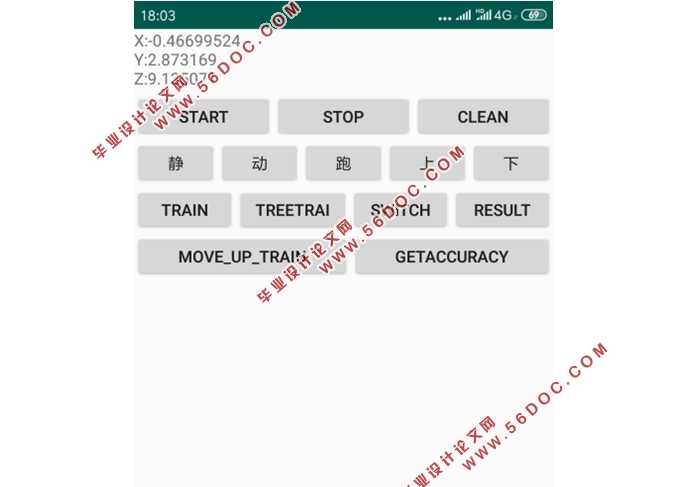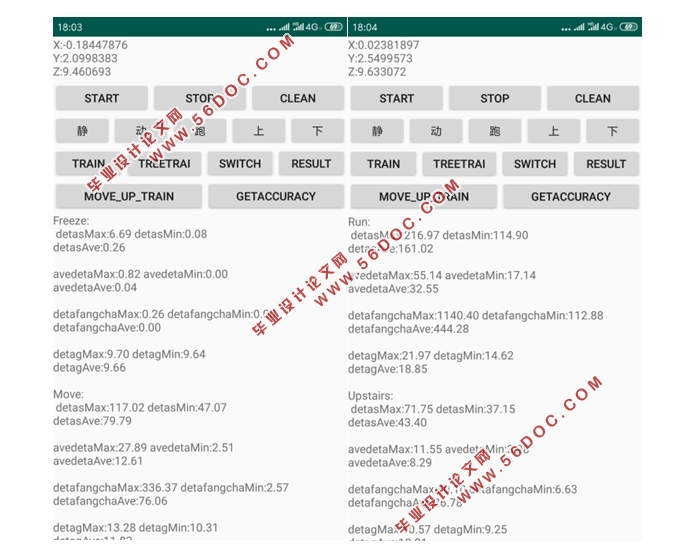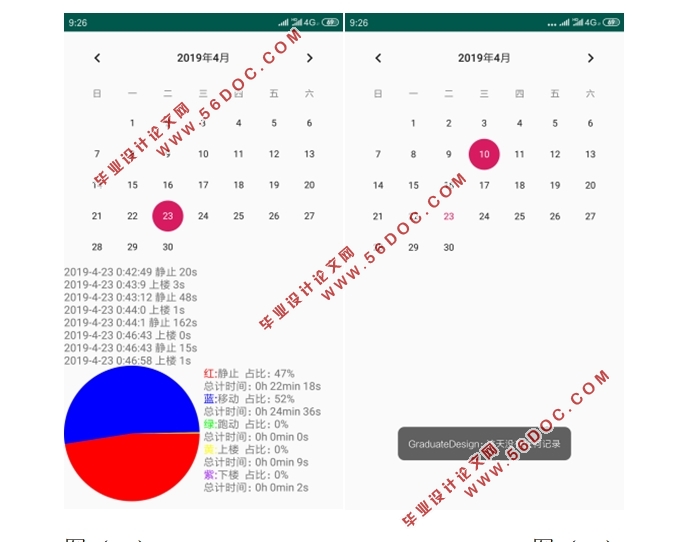基于安卓Android的人体动作行为识别系统APP设计(Android studio)
来源:56doc.com 资料编号:5D20555 资料等级:★★★★★ %E8%B5%84%E6%96%99%E7%BC%96%E5%8F%B7%EF%BC%9A5D20555
资料以网页介绍的为准,下载后不会有水印.资料仅供学习参考之用. 密 保 惠 帮助
资料介绍
基于安卓Android的人体动作行为识别系统APP设计(Android studio)(论文12000字,程序代码)
摘要:Android手机已经成为我们大部分人日常生活中不可或缺的一部分,而且其功能的日益强大也让其可开拓性越来越强,其自携带的3轴加速度传感器也让基于Android的人体动作行为识别的实现成为可能,本文主要探究的是现已应用于人体动作识别的基于机器学习的分类算法在Android手机上的表现。在算法的选用上主要应用的是支持向量机算法与决策树算法,通过测试,比较改进来选出最适合于Android的识别算法。在Android系统使用其自带的数据库完成一个可以记录并查询识别结果的应用程序。
关键词:Android应用开发;加速度传感器;机器学习算法;数据库
Human Action and Behavior Recognition System Based on Android
Absrtact: Android mobile phone has become an indispensable part of our daily life, and its increasingly powerful functions make it more and more pioneering. Its self-contained three-axis accelerometer also makes it possible to realize human action recognition based on Android. This paper mainly explores the machine-based learning which has been applied to human action recognition. The performance of classification algorithm on Android mobile phone. In the selection of the algorithm, the main application is the support vector machine algorithm and decision tree algorithm. Through testing and comparison, the most suitable recognition algorithm for Android is selected. The Android system uses its own database to complete an application that can record and query the recognition results.
Key words: Android application development; Acceleration sensor; Machine learning algorithm; Database



目录
1绪论 1
1.1 研究背景 1
1.2 研究意义 1
1.3 国内外研究现状 1
2 需求分析与开发相关技术 2
2.1 需求分析 2
2.2 手机加速度传感器 2
2.3 Android开发技术 3
2.3.1 Android系统 3
2.3.2 AndroidStudio平台 3
2.3.3 Android编程语言 3
3 人体动作识别相关算法 4
3.1 决策树 4
3.2 隐马尔科夫模型 4
3.3 神经网络 4
3.4 支持向量机 4
3.5 聚类 5
4 设计思路与具体实现 5
4.1 设计思路 5
4.2 具体实现 6
4.2.1 算法选择 6
4.2.2 训练程序的实现 6
4.2.3 识别程序的实现 8
5 系统测试 11
5.1 训练程序测试 11
5.2 识别程序测试 13
5.3 算法性能比较 14
5.4 测试结果分析 18
6 结论 18
参考文献 19
致谢 20
|







